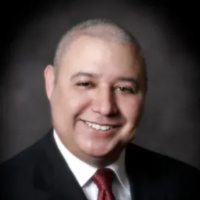Kouts RICO Act Lawyer, Indiana
Sponsored Law Firm
-
 x
x

Click For More Info:
-
Stracci Law Group, PC
11890 Broadway Crown Point, IN 46307» view mapCriminal Defense, OWI & Personal Injury Law Respected. Resourceful. Relentless.
Paul maintains a strong rapport with his clients as well as with other legal professionals in the area. He is a relationship builder, who has built strong relationships.
800-928-0490
Not enough matches for Kouts RICO Act lawyer.
Below are all Kouts Criminal lawyers.
Paul Stracci
✓ VERIFIEDPaul Stracci is a uniquely experienced criminal trial attorney who has had remarkable success in the courtroom. He successfully defended his first mu... (more)
Edward John Wartman
✓ VERIFIEDEd was born and raised in Calumet City, Illinois graduating from Quigley South High School in Chicago in 1988. He graduated from Northwestern Univers... (more)
Aaron L. Robbins
✓ VERIFIEDAt Robbins and Seville, LLC, we specialize in providing 21st-century solutions to our clients' legal challenges. This includes utilizing cutting-edge... (more)
Alejandro Dominguez
✓ VERIFIEDI am Alex Dominguez and I provide the highest quality, cost-efficient legal representation possible. I am an experienced trial lawyer representing cli... (more)
Samuel George Vazanellis
Stephen Charles Bower
Alison Louise Benjamin
FREE CONSULTATION
CONTACT Paul Stracci Crown Point, IN
Paul Stracci Crown Point, IN Practice AreasExpertise
Practice AreasExpertise




